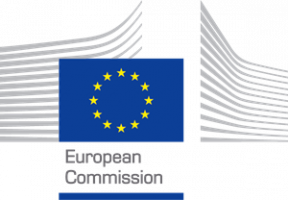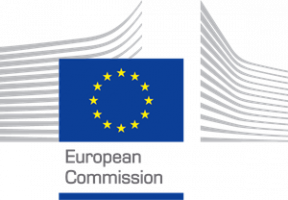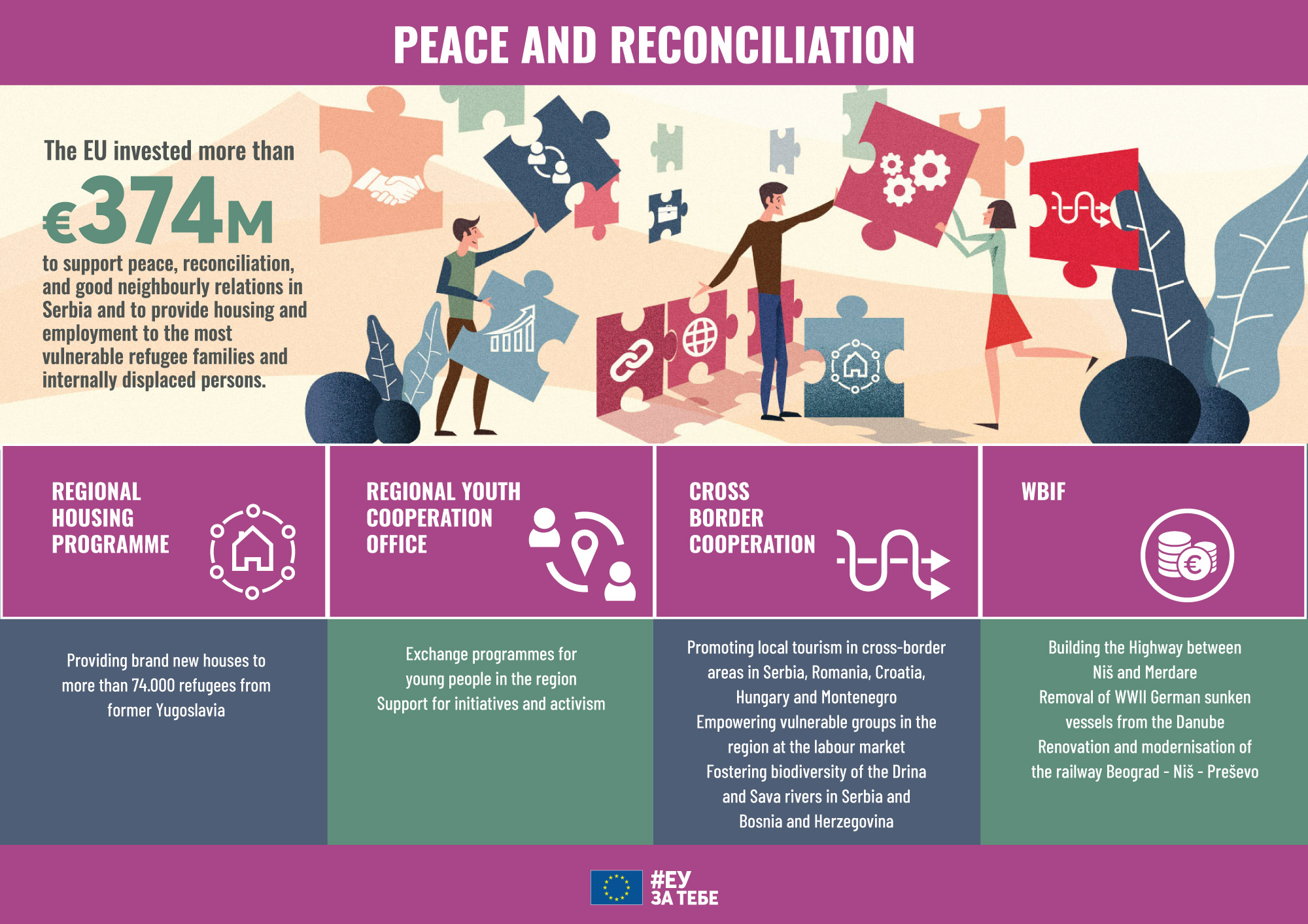EU institutions/bodies

Directorate-General for International Cooperation and Development (DG DEVCO)

Directorate-General for European Civil Protection and Humanitarian Aid Operations (DG ECHO)

Reconciliation is firmly rooted in the process of European integration launched following the Second World War. The idea of former enemies joining forces in search of common interest and engaging in constructive and pragmatic cooperation has laid the foundation for the European Coal and Steel Community. Now, the European Union celebrates not only decades of peace between its Member States, but also the process of their integration in a way that would be impossible without reconciliation.

In the Western Balkans, the region that was hit hard by the dissolution of Yugoslavia, conflicting narratives and the tensions they cause remain at the core of neighbourly relations, with a series of bilateral disputes still awaiting resolution. Just as European communities helped to establish peace in Western Europe following the Second World War, the EU promotes the process of reconciliation in all countries that were once part of Yugoslavia. A credible promise of accession given to all Western Balkans countries encourages them to improve their relations and work more vigorously to achieve reconciliation.
The European Commission’s Enlargement Strategy, published in March 2018, apart from being focused on resolving all bilateral disputes, put special emphasis on reconciliation as a prerequisite for accession. In its June 2019 conclusions, the Council of European Union reiterated the need to overcome legacies of the past and encourage reconciliation in the Western Balkans, building upon common values, such as tolerance, inclusivity, and mutual trust. Moreover, the document stresses the importance of and contribution made by civil society in this process at the regional level, coupled with stronger political commitment. In this regard, the European Union supports civil and academic initiatives dealing with establishing contacts, cooperation, and building of trust between societies and individuals.
The need to establish contacts between young people and promotion of understanding, reconciliation and cooperation are at the very heart of support the EU lends to the region. Spearheading the Regional Youth Cooperation Office (RYCO) initiative, the European Union and Western Balkans countries are making a joint investment for the future, an investment in young people working to build trust and promote cooperation, and act as the best guarantors of good neighbourly relations.
When it comes to dealing with the aftermath of war, the Regional Housing Programme (RHP) is one of principal efforts made to achieve peace, stability, and reconciliation in the region of Western Balkans. This effort is made together with countries in the region and other key partners. The European Union is the leading donor of RHP, the initiative that seeks to give home to 74,000 refugees from former Yugoslavia, 45,000 of whom reside in Serbia.
Serbia remains engaged in a number of initiatives aimed at regional cooperation, such as the South-East Europe Cooperation Process, the Regional Cooperation Council, Central European Free Trade Agreement (CEFTA), Adriatic-Ionian Initiative, macro-regional EU strategies for Danube, Adriatic, and Ionian regions, Regional coalition for establishing the facts about all victims of war crimes and other serious rights violations committed on the territory of the former Yugoslavia (REKOM), the Regional School for Public Administration (ReSPA) and Brdo-Brijuni Process.
EU support for peace, reconciliation, and good neighbourly relations in Serbia has reached more than EUR300 million. The assistance is aimed at strengthening regional cooperation and stability and tackling pending bilateral issues and legacies of the past. The EU has secured EUR74 million to support housing and employment of the most vulnerable refugee families and internally displaced persons. The goal of a regional programme implemented in this sector is to improve the lives of 74,000 people, or around 27,000 families, from the territory of former Yugoslavia. The overall budget is estimated at approximately EUR584 million for a five-year period.
Serbia remains engaged in a number of initiatives aimed at regional cooperation, such as the South-East Europe Cooperation Process, Regional Cooperation Council, Central European Free Trade Agreement (CEFTA), Adriatic-Ionian Initiative, macro-regional EU strategies for Danube, Adriatic, and Ionian regions, Regional coalition for establishing the facts about all victims of war crimes and other serious rights violations committed on the territory of the former Yugoslavia (REKOM), Regional School for Public Administration (ReSPA) and Brdo-Brijuni Process.
EU assistance is implemented in cooperation with the Government of Serbia and donations are used to advance the development of Serbia. The European Union remains the leading supporter and donor of Serbia in terms of reform support and strengthening of institutions necessary for the establishment of good neighborly relations, trust building, and cooperation development.


